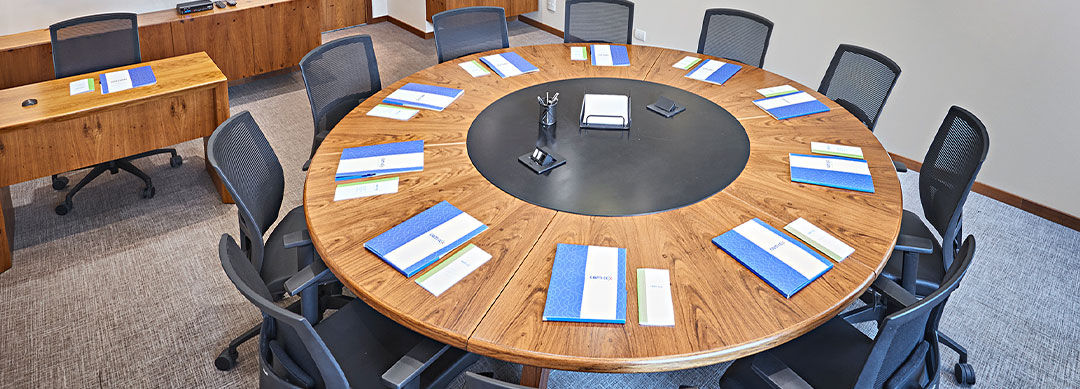Remote format and increased team diversity were the main innovations of 2020, and are expected to continue this year
By Sérgio Siscaro
There is no doubt that 2020 was a challenging year. For CAM-CCBC, the challenge was to maintain its normal activities, adapting them to the safety protocols and social distancing brought by the new coronavirus pandemic. Such adjustments did not prevent the Center from continuing to provide recognized quality services in arbitration and mediation procedures. And they have not interrupted the process of renewal in the Center’s organizational structure, with the aim of incorporating more and more diversity.
According to the Center’s Institutional Development advisor, Ana Flávia Furtado, last year was particularly important in this direction. “In 2020 we realize how important it is for CAM-CCBC to be in line with the debates that take place in our society. This made us evaluate internally the important values for the organization – such as social responsibility and diversity”, she says.
This is highlighted by CCBC’s assistant of People Management, Daiane Garritano. “Here in CAM-CCBC, we always welcome professionals who want to work with arbitration or have some experience in this activity. In addition to the technical component, we always take into account the diversity aspect”, she points out. She explains that in 2020 the organization established a Diversity Committee, which is working with several inclusion actions, and is investing heavily in hiring black people, LGBTQ+ public and professionals of all ages and regions of the country. “We want to accelerate these activities in 2021”, she emphasizes.
Cássia Regina Vanícola, CCBC’s Executive Director of Operations, says that since the beginning of last year topics related to diversity had already been debated. “We discussed internally on the subject and the president of the CAM-CCBC made clear the need for us to increase the levels of diversity in the institution – especially those of racial diversity”, she affirmed. She reports that the Diversity Committee will be the forum for the discussion and development of new ways of increasing diversity.
Challenges of the pandemic
Another important aspect that tested CAM-CCBC’s ability of adaptation in 2020 were the limitations brought by the Covid-19 pandemic – and the massive use of virtual communication tools. “There was a quick adaptation of the Center’s teams to the new digital format; we even had people who joined the organization without yet knowing its physical headquarters”, Furtado comments.
Garritano points out that one of the challenges of 2020 was to implement a distance working format for the teams. “At first it was more challenging, but now we are more adapted. It is a format that we will be continuing to adopt in 2021”, she says, informing that the new employees already receive all the infrastructure and technological support necessary for virtual performance.
This point is also highlighted by Vanícola. “All of a sudden,, we had to request that 100% of our teams started working in home office. The Information Technology (IT) structure stayed completely available. At the same time, we worked in implementing several initiatives to support the teams in this challenging time – such as creating virtual ‘coffee rooms’, offering yoga and meditation classes, and support from psychologists”, she reveals.
A new moment
The successful adaptation of CAM-CCBC to the virtual format, as well as the strengthening of diversity in its teams, are aspects to be pursued in 2021. “We will deepen our goals to increase the levels of diversity at the Center – developing the theme more and more in our culture, both in terms of the Center and the community that works with alternative dispute resolutions (ADRs) as a whole”, says Furtado. “Regarding the virtualization of procedures, this is a point that should remain – even if a hybrid format is adopted after the pandemic,” considers the Executive Director of CCBC.





